Hard water is a common problem in many homes and is characterized by high mineral content, mainly calcium and magnesium. These minerals can cause various issues, from limescale in pipes to reducing the effectiveness of soap and detergents. Homeowners often turn to solutions to filter hard water to improve not only the life of their appliances but also their overall quality of life. This article will uncover the often overlooked benefits of filtering hard water for health and home. By looking at the effectiveness of different filtration methods, including water filters that remove chlorine and soften water, we will provide a comprehensive guide for those looking to improve their water quality.
What is Hard Water?
Hard water is water with high dissolved minerals, mainly calcium and magnesium. Water picks up these minerals as they flow through rock formations like limestone and chalk and dissolve them. Water hardness is measured in grains per gallon (gpg) or milligrams per liter (mg/L).
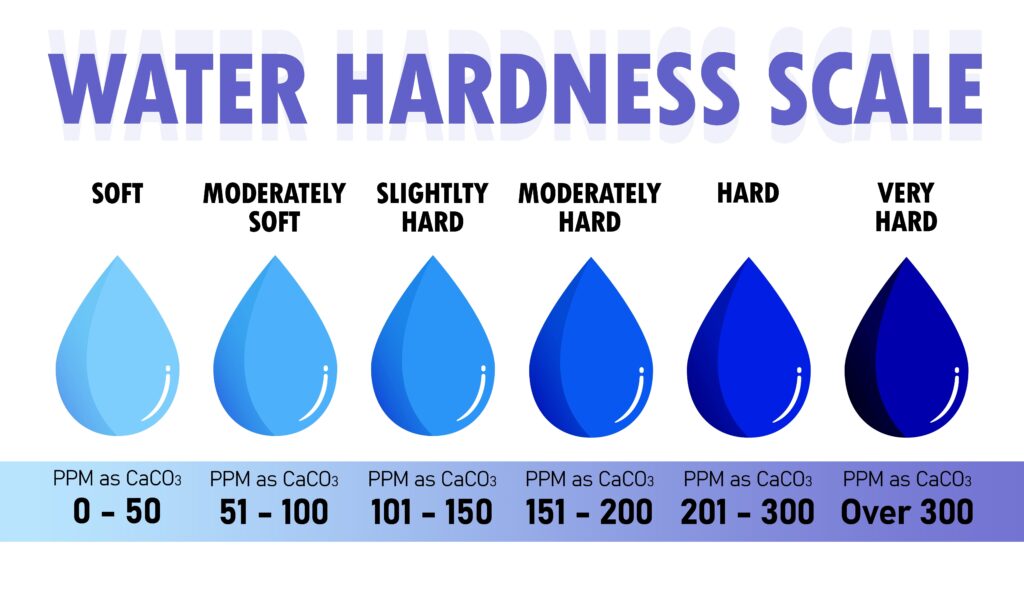
The degree of hardness in water can vary depending on where you live. Some areas may have slightly hard water, while others may have tough water.
Hard water is a term used to describe water that contains high levels of minerals, particularly calcium and magnesium. These minerals are naturally present in the earth’s crust and can dissolve in water as it passes through rocks and soil. The concentration of these minerals determines the hardness of the water. While hard water is not considered harmful, it can wreak havoc on your home’s plumbing system and appliances. This is because when hard water is heated or evaporates, it leaves behind mineral deposits known as limescale. These deposits can build up over time, clogging pipes, reducing water flow, and damaging appliances such as water heaters, dishwashers, and washing machines. Mineral deposits can restrict water flow and lead to reduced water pressure.
The hardness of water is typically measured in grains per gallon (GPG) or parts per million (PPM). Water with a hardness level below 1 GPG is considered soft, while anything above 7 GPG is considered hard. It is important to note that the hardness of water can vary depending on your location, as different regions have different geological compositions. Understanding the hardness level in your water is crucial to determining the best course of action to combat its effects. Hard water can cause scale buildup in the hot water heater, reducing efficiency.
The Negative Effects of Hard Water
Hard water in our homes is often overlooked but significantly impacts our well-being and living environment. High levels of minerals like calcium and magnesium make hard water more than a hassle; it comes with a host of negative effects that can affect everything from our health to our appliances. Shower water can affect skin and hair health, drying and irritating. Using shower water filters can reduce scale and improve water for bathing, making it kinder to skin and hair.
Health, Skin, and Hair
First, hard water’s effects on health, skin, and hair cannot be ignored. When used for bathing or showering, hard water can leave skin dry and itchy because it can’t rinse away soap residue properly. This soap scum can clog pores and make conditions like acne, eczema, and dermatitis worse. Hard water is just as bad for hair; it can strip the hair of its natural oils, leaving it dull, tangled, and unmanageable. The high mineral content can also build up on the scalp, weaken hair follicles, and cause hair loss or damage over time.
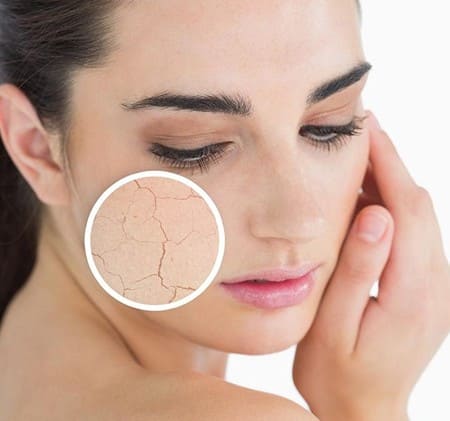
Hard water consumption doesn’t pose a health risk in terms of disease, but it can affect mineral intake. Some studies say minerals in hard water can contribute to our dietary needs, but our bodies can’t absorb these forms. So, the supposed health benefits of getting minerals from hard water are minimal at best.
Home Appliances and Plumbing
Hard water affects the very fabric of our homes, especially our appliances and plumbing. Appliances that use water, like washing machines, dishwashers, water heaters, and coffee makers, are susceptible to hard water. The minerals in hard water build-up inside these appliances and form limescale deposits that reduce their efficiency and lifespan. That means more energy consumption, more repairs or replacements, and extra costs for homeowners.
Plumbing systems suffer, too. Mineral deposits can clog pipes and restrict water flow and pressure, leading to leaks and damage over time. Boilers and tankless water heaters can also be affected, as limescale buildup reduces their heating capacity, resulting in higher energy bills and eventual system failure.
Aesthetic and Practical Concerns
Beyond health and appliance efficiency, hard water affects the looks and practicality of daily life. Glassware, cutlery, and dishes come out of the dishwasher spotted and streaked and need extra cleaning to remove residue. Clothes washed in hard water feel stiff and dull as minerals interfere with the detergent. Hard water leaves ugly stains on bathroom fixtures, tiles, and faucets, making the house look less pleasant.
Can You Filter Hardness Out of Water?
So you’re wondering if you can filter out the hard water? The answer is yes, but there are some caveats. Hard water with high calcium and magnesium levels is a problem in many households, but with advances in water treatment technology, it’s now easier to manage and mitigate the issues.
Filtration Solutions
Various filtration methods can remove these minerals from the water to “soften” it. The most common and effective solution is ion-exchange water softeners. These systems work by exchanging the calcium and magnesium ions in the water with sodium or potassium ions. The hard minerals are replaced by sodium ions, so the water is softened. The hard minerals are swapped for softer ones to soften the water as the hard water passes through a resin bed inside the softener.
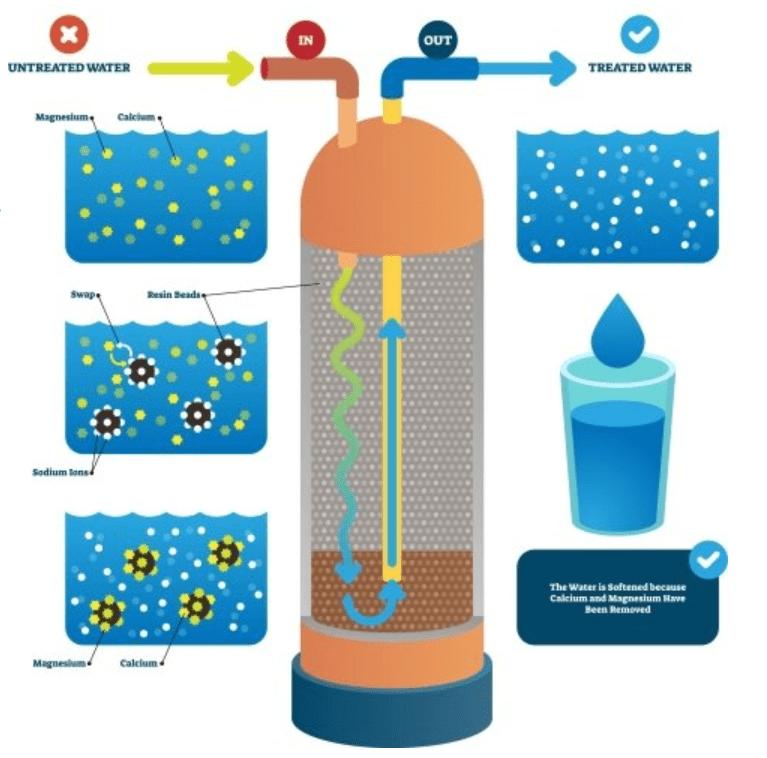
Another way is reverse osmosis systems, which can reduce overall mineral content in water, including hardness. It is not designed for water softening but can filter out a percentage of dissolved solids, so it is a good option for households who want to improve water quality. Activated carbon filters are used in water filters to improve taste and odor by removing impurities like chlorine. It is found in pitcher or faucet-mounted systems and can be an affordable solution for some hard water problems, but it may need more frequent replacements due to bacterial growth.
Effectiveness and Considerations
These methods are proven to work. Water softeners, especially ion exchange ones, are designed to solve hard water problems and can reduce or eliminate the negative effects of hard water. However, you need to consider the maintenance costs of these systems, such as salt replacement for ion-exchange softeners and filter replacement for RO systems.
In addition to technical solutions, homeowners should also conduct regular water hardness tests. These tests will determine the severity of hard water and assess the filtration system’s effectiveness. By monitoring the water quality, homeowners can check if their filtration system is working properly and make necessary adjustments to maintain soft water.
Comprehensive Solutions to Hard Water Problems
Hard water is a global problem affecting millions of homes. The search for solutions to remove hard water has led to many methods, each with pros and cons. This section details these methods and the best ways to beat hard water.
How to Remove Hardness from Water
The primary way to remove hard water is through water softeners and advanced filtration systems. Water softeners, especially those with ion-exchange technology, target the minerals that cause hard water. They replace calcium and magnesium ions with sodium or potassium ions so water becomes soft. Water softeners prevent scale build-up and extend the life of household appliances, so they are a popular choice among homeowners. Soft water is also better tasting and has less scum build-up, so it’s perfect for household use, including drinking and cooking.
Filtration systems like reverse osmosis are another way to combat hard water. While reverse osmosis systems are most often associated with drinking water purification, they also remove many minerals, including the ones that cause hard water. These systems force water through a semi-permeable membrane and filter out minerals and impurities.
Each has its advantages. Ion exchange softeners are great for softening water and appliances. Reverse osmosis systems also remove many other contaminants and give you purified water for drinking and cooking.
Does Boiling Tap Water Remove Hardness?
One of the myths about hard water treatment is that boiling will solve the problem. Boiling tap water will precipitate out some of the calcium, make it less soluble, and reduce temporary hardness. But this has big limitations. Boiling doesn’t remove the minerals; it just changes the soil’s composition. And it doesn’t work on permanent hardness, which is a big part of the hard water problem in many areas.
Advantages and Disadvantages of Filtering Methods
Water Softeners:
- Advantages: Highly effective at removing hardness, improving appliance efficiency, and preventing scale buildup.
- Disadvantages: Requires regular maintenance, including salt replacement, and can introduce sodium into the water supply, which may not be desirable for all users.
Reverse Osmosis Systems:
- Advantages: It removes a broad spectrum of contaminants, including minerals that cause hardness, and it offers clean drinking water.
- Disadvantages: Typically more expensive and produces wastewater in the filtration process, which may raise concerns about water efficiency.
Boiling Water:
- Advantages: Simple, no-cost method that can reduce temporary hardness.
- Disadvantages: It is ineffective against permanent hardness, does not remove minerals, and is impractical for large quantities of water.
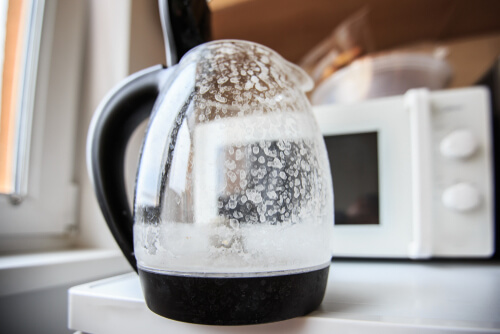
Choosing the right way to remove hardness from water varies from house to house. Water softeners and reverse osmosis systems are full solutions, but understanding the benefits and drawbacks is key to deciding. Like any water treatment option, it balances effectiveness, cost, and maintenance.
The Surprising Benefits of Filtering Hard Water
Filtering hard water is not just a solution to the problems it causes; it’s a game changer affecting everything from personal health to household appliances’ overall performance and longevity. Knowing these benefits will help you see the value of investing in hard water solutions. Soft water can improve skin and hair health by removing mineral deposits.
Health Benefits
One of the biggest benefits of filtering hard water is skin and hair health. Hard water with high mineral content can leave skin feeling dry and itchy because it hinders the natural moisture retention process. It can also make soap and shampoo lather poorly and leave a residue that aggravates skin conditions like eczema or acne. Filtered water, being softer, rinses clean without leaving mineral deposits behind, resulting in smoother, healthier skin and more vibrant hair.
Overall well-being improves, too. Water tastes and feels better, so you drink more of it. Hydration is key to bodily functions, from digestion to brain performance.
Home Benefits
It’s not just about personal health; it’s about your home’s infrastructure, too. Appliances that use water, like dishwashers, washing machines, and water heaters, suffer from limescale buildup due to hard water, which can reduce their efficiency and lifespan. Filtering hard water prevents this buildup, extends the life of the appliances, and reduces the need for repairs or replacements.
Plus, filtered water reduces plumbing issues. Mineral buildup in pipes can reduce water flow and increase pressure, which can cause leaks and other costly damages. By filtering out these minerals, homeowners can keep their plumbing systems healthy, have a steady flow, and reduce the risk of blockages and corrosion.
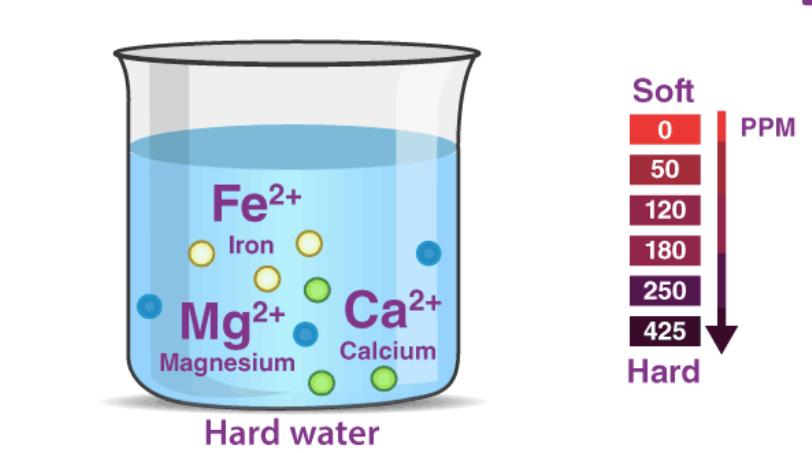
Finally, filtering can improve the taste and smell of the water. Hard water can have an unpleasant taste or smell that makes it less desirable to drink or cook with. Filtered water, free of those minerals, tastes better and makes food and beverages taste better when prepared.
The benefits of filtering hard water touch almost every aspect of daily living, from personal health to home appliance maintenance and efficiency. Investing in water filtration systems is not only a solution to hard water problems but also a step towards a healthier lifestyle and a problem-free home. So, the benefits of softening hard water make a strong case for homeowners to consider filtration solutions.
Conclusion
So there you have it. The evidence for filtering hard water is stacking up. From understanding the science of hard water to seeing its impact on our daily lives, we have one clear answer: filtering hard water is a game changer for our health and homes.
The benefits of addressing hard water—from skin and hair health to appliance longevity—make it clear we need to be proactive. The solutions—ion exchange water softeners to reverse osmosis systems—give us the tools to fix the problems of hard water and upgrade our lives.
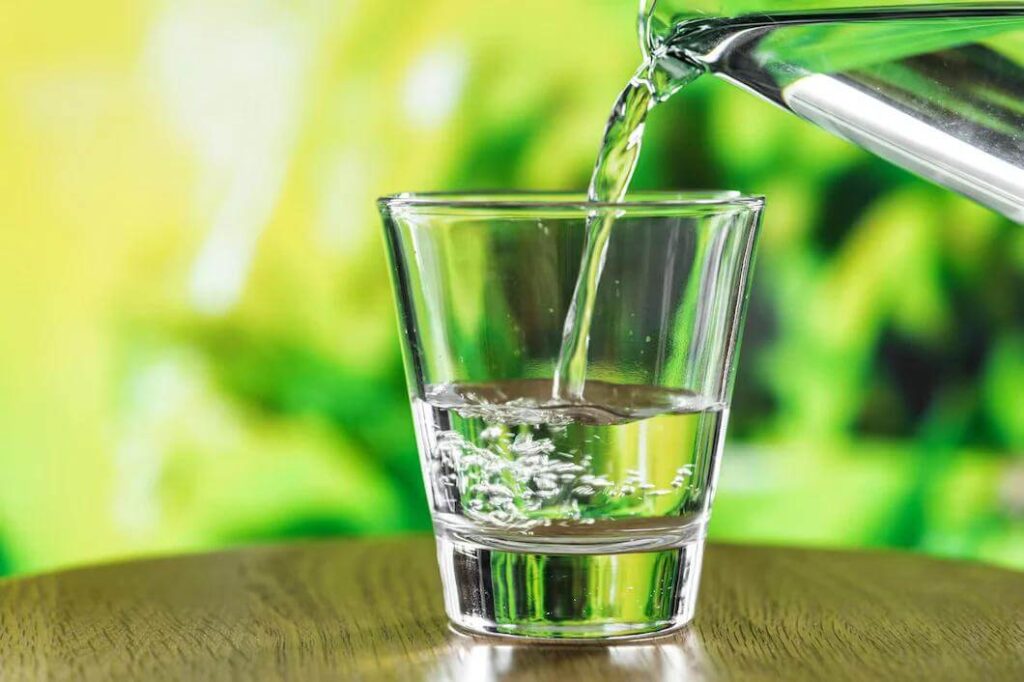
FAQ
Q1: Can you filter hardness out of water?
Yes, you can filter hardness out of water using water softeners or reverse osmosis systems. These methods effectively remove the minerals (mainly calcium and magnesium) responsible for water hardness, providing softer water for home use.
Q2: How do you remove hardness from water?
Hardness can be removed primarily from water through ion-exchange water softeners and reverse osmosis systems. Ion-exchange softeners replace hard minerals with sodium or potassium ions, while reverse osmosis filters water through a semipermeable membrane, removing many contaminants, including hardness.
Q3: Does boiling tap water remove hardness?
Boiling tap water can remove temporary hardness caused by dissolved bicarbonate minerals, which precipitate out of the water when heated. However, it does not remove permanent hardness caused by non-bicarbonate minerals like calcium and magnesium sulfates and chlorides.
Q4: How do you know if water is hard?
Signs of hard water include soap not lathering well, white scale buildup on faucets and appliances, dull and stiff laundry after washing, spots on dishes and glassware, and reduced water flow in pipes. Water hardness test kits are available for precise measurement, which can quantify the hardness level in grains per gallon (GPG) or milligrams per liter (mg/L).
Q5: What are the negative effects of hard water?
The negative effects of hard water include dry and itchy skin, dull hair, the buildup of scale on plumbing fixtures and appliances, reduced efficiency of water heaters, increased energy costs, and potential for clogged pipes. Hard water can also make cleaning tasks more difficult, requiring more soap and detergent and contributing to higher household expenses.
Related Researches
How to Easily Check for Hard Water and How to use hard water test strips?
